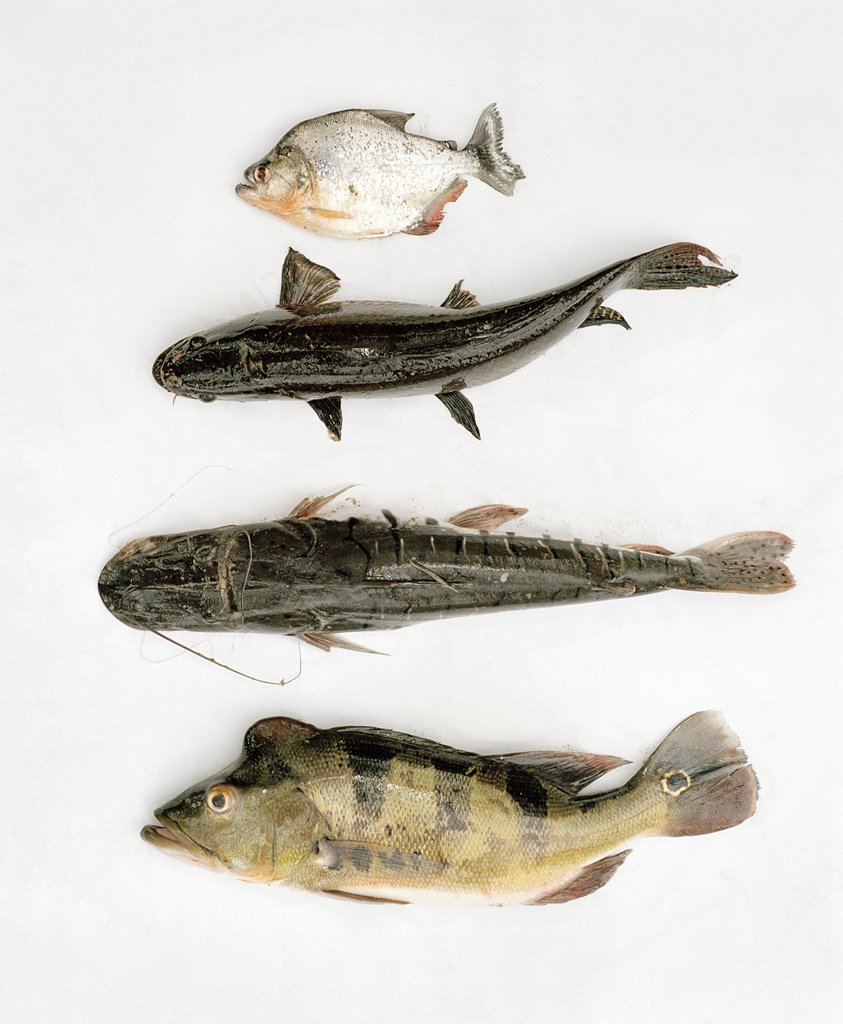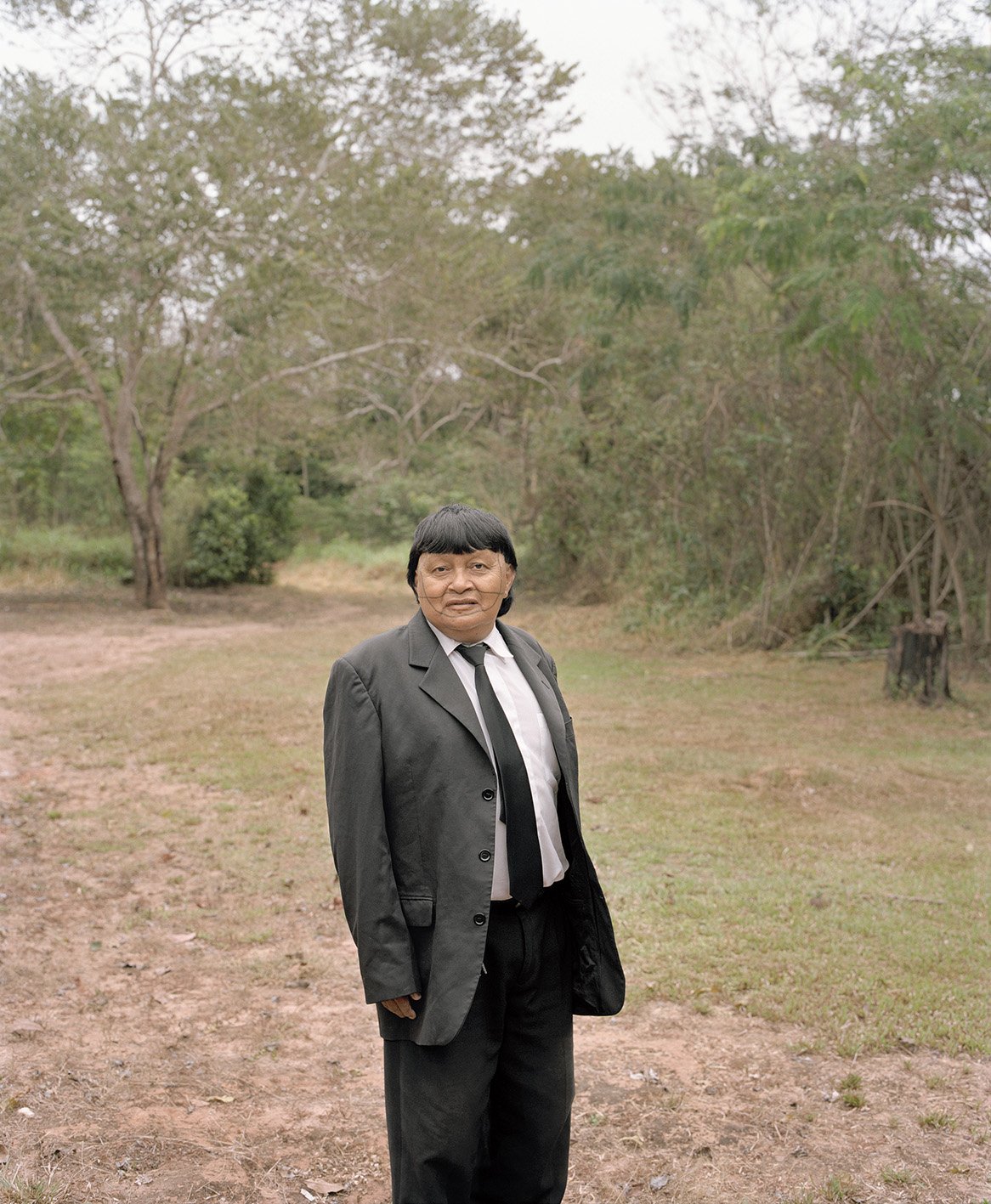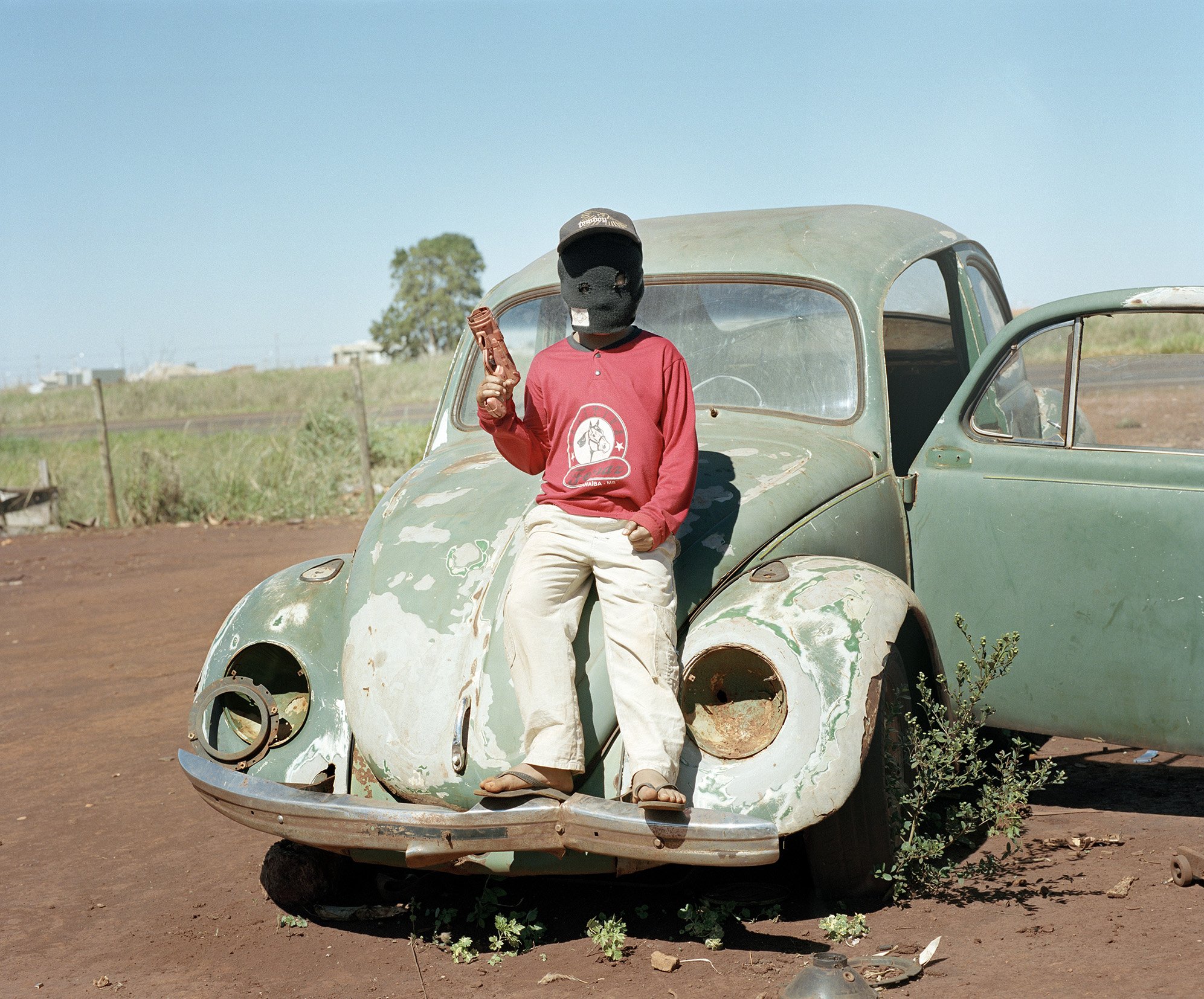THE JUNGLE BOOK Yann Gross
Sito Web - Libri di Yann Gross
Quando nel 1541 il conquistatore Francisco de Orellana iniziò la sua spedizione alla ricerca della cannella (spezia d’oro all’epoca) non avrebbe potuto prevedere che i suoi viaggi lo avrebbero portato sul fiume più lungo del mondo: il rio delle Amazzoni.
Ripercorrendo i luoghi delle spedizioni passate, Yann Gross documenta l’Amazzonia, svelando degli aspetti meno conosciuti delle popolazioni locali, lasciando da parte l’immaginario romantico della giungla e mettendo in evidenza le influenze di forze economiche e sociali contemporanee che sono in atto sul posto.
Gross procede secondo una modalità documentaria, con immagini che semplificano e staticizzano ulteriormente le persone e gli oggetti che fotografa, molti ritratti, paesaggi e still life, piano compongono un grande affresco della complessità della Giungla, una complessità che i media tradizionali solitamente tralasciano in virtù di notizie roboanti o epiche che meglio si adattano a dei media affamati di click e di pubblicità.
Le foto ci appaiono come quadri che colgono la semplicità e la durezza di una vita che si interseca sempre più con la modernità.
Si intravede la possibilità di un dialogo, spesso tradito dalle dinamiche del consumo e dell’avidità.
Foto dopo foto sale la tensione per un mondo in cambiamento che cammina sull’orlo della scomparsa.
Piccoli villaggi Cofan, il fiume, dispensari medici, scuole, uffici del registro tutto è in un equilibrio precario fra contemporaneità e tradizione.
Alcuni volti ci guardano e ci interrogano ci chiedono delle nostre intenzioni. Non sanno che le decisioni vengono prese da pochi nell’indifferenza delle masse che semplicemente ignorano o preferiscono ignorare le pressioni sociali, economiche e a volte anche fisiche cui sono sottoposti gli indigeni, che non sono dei “buoni selvaggi” ma gente come noi che dopo aver studiato ed essere stata esposta alla nostra società cerca di ritagliarsi uno spazio dignitoso in un mondo che nonostante le opportunità sembra restringersi sempre più dietro la spinta di una economia che non è più in relazione con il mondo ma fine a se stessa.
Falsi sciamani, e ragazze in cerca di turisti superficiali armati di macchine fotografiche e pronti a cogliere quell’esotico che rimane una maschera, uno specchio per confondere i cacciatori di esperienze a pagamento che vogliono raccontare del viaggio - avventura ai colleghi in ufficio per dare un senso ad una vita che sembra averlo perso.
Tribù in via di sparizione, un Tarzan invecchiato e conscio del suo ruolo…
Il libro di Gross è un piccolo dolce caldo regalo che segna un punto importante in un ricerca approfondita sul campo che si crea con costanza giorno dopo giorno. Gross ama collaborare con le comunità che documenta, prendendosi il tempo, anche anni, dell’ascolto. Un fotografo impegnato che cerca di creare dei documenti approfonditi per chi verrà dopo di noi. Un atto di amore e di accettazione di un mondo fragile ma resiliente che sta cercando nuove vie di sopravvivenza.
Yan Gross ha ricevuto numerosi premi nel corso della sua carriera e The Jungle book è diventato un vero e proprio caso soprattutto dopo che ha vinto, nel 2015, il Luma Rencontres Dummy Book Award uno dei più prestigiosi premi al mondo i libri fotografici.
Oggi è praticamente introvabile se non a prezzi folli.
Quello che interessa i fotografi è la Progettualità e il tipo di Processo che Yann Gross mette in campo quando lavora, una modalità che si è molto diffusa negli ultimi dieci anni e che non può essere ignorata perché è alla base di come viene recepito un autore / artista oggi.
Il risultato è molto lontano dal lavoro “Amazonas” di Mad Nissen sembra possedere un rigore scientifico e una apparente freddezza e neutralità che diventa la sua forza.
Così come i testi orientano e danno una chiave di lettura delle immagini che non ci aspettiamo del tutto mescolando in modo sapiente indagine e storytelling.
English Version
THE JUNGLE BOOK Yann Gross
When in 1541 the conqueror Francisco de Orellana began his expedition in search of cinnamon (a golden spice at the time) he could not have foreseen that his travels would take him to the longest river in the world: the Amazon river.
Retracing the places of past expeditions, Yann Gross documents the Amazon, revealing lesser-known aspects of local populations, leaving aside the romantic imagery of the jungle and highlighting the influences of contemporary economic and social forces that are taking place there.
Gross proceeds according to a documentary modality, with images that simplify and further immobilize the people and objects he photographs, many portraits, landscapes, and still life, slowly make up a large fresco of the complexity of the Jungle, a complexity that traditional media usually neglect by virtue of bombastic or epic news that is best suited to media hungry for clicks and advertisements.
The photos appear to us as paintings that capture the simplicity and hardness of a life that increasingly intersects with modernity.
We see the possibility of a dialogue, often betrayed by the dynamics of consumption and greed.
Photo after photo the tension rises for a changing world that is walking on the brink of disappearance.
Small Cofan villages, the river, medical dispensaries, schools, registry offices, everything is in a precarious balance between contemporaneity and tradition.
Some faces look at us and ask us about our intentions. They do not know that decisions are made by a few in the indifference of the masses who simply ignore or prefer to ignore the social, economic, and sometimes even physical pressures to which the natives are subjected, who are not "good savages" but people like us who, after having studied and having been exposed to our society tries to carve out a dignified space in a world that despite the opportunities seems to shrink more and more behind the thrust of an economy that is no longer related to the world but an end in itself.
False shamans, and girls looking for superficial tourists armed with cameras and ready to capture that exotic that remains a mask, a mirror to confuse the hunters of paid experiences who want to tell about the trip - adventure to colleagues in the office to give a meaning to a life that seems to have lost it.
Tribe in the process of disappearing, an aged Tarzan aware of his role ...
Gross's book is a sweet little warm gift that marks an important point in in-depth research on the field that is created with constancy day in and day out. Gross loves collaborating with the communities he documents, taking the time, even years, to listen. A busy photographer who tries to create in-depth documents for those who will come after us. An act of love and acceptance of a fragile but resilient world that is looking for new ways of survival.
Yan Gross has received numerous awards throughout his career and The Jungle book has become a real case especially after it won, in 2015, the Luma Rencontres Dummy Book Award one of the most prestigious photo books in the world.
Today it is practically impossible to find if not at crazy prices.
What interests photographers is the Planning and the type of Process that Yann Gross puts in place when he works, a modality that has become very widespread in the last ten years and that cannot be ignored because it is the basis of how an author is perceived / artist today.
The result is very far from Mad Nissen's “Amazonas” work, it seems to possess a scientific rigor and an apparent coldness and neutrality which becomes its strength.
Just as the texts orient and give a key to interpreting the images that we do not fully expect by skilfully mixing investigation and storytelling.
Vuoi imparare come si fanno dei progetti di fotografia documentaria? Guarda i miei Corsi di Fotografia.






